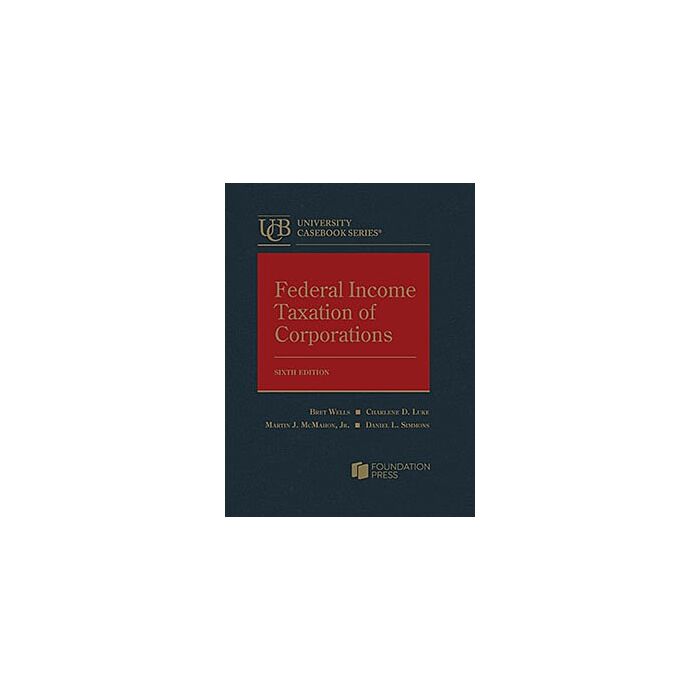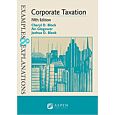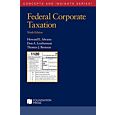Order by phone 1-866-808-5635 (M-F 10am - 4pm CST) Help/FAQs / LawRewards / Gift Certificates / Sell Us Your Law School Textbooks
-
Attorney
-
A-B
- A
- Accounting & Finance
- Administrative Law
- Admiralty Law
- Age & Gender Law
- Agency & Partnership Law
- Agricultural Law
- Alternative Dispute Resolution
- Animal Law
- Antitrust Law
- Appellate Advocacy
- Arbitration Law
- Art Law
- Audio Items
- Aviation & Space Law
- B
- Banking Law
- Bankruptcy Law
- Bar Exam Preparation
- Biotech Law
- Business Associations & Organizations
- Business Law
-
C-D
- C
- Civil Law
- Civil Procedure Law
- Civil Rights Law
- Class Action Law
- Commercial Law
- Commercial Paper
- Communications Law
- Community Property Law
- Comparative Law
- Conflict of Laws
- Constitutional Law
- Construction Law
- Consumer Law
- Contract Law
- Copyright Law
- Corporate Finance Law
- Corporate Tax Law
- Corporations Law
- Criminal Justice
- Criminal Law
- Criminal Procedure
- D
- Debtor-Creditor Law
- Defamation Law
- Disability Law
- Discrimination Law
- Divorce Law
- Domestic Relations Law
- Download Items
- Drug Law
-
E-F
- E
- Economics & Law
- Education Law
- Elder Law
- Election Law
- Employee Benefits & ERISA Law
- Employment Law
- Energy Law
- Entertainment Law
- Environmental Law
- Estate & Gift Tax Law
- Estates Law
- Evidence Law
- F
- Family Law
- Federal Courts & Jurisdiction
- Federal Income Tax Law
- Finance Law
- First Amendment Law
- First Year Law School Guides
- Flashcard Items
- Franchise Law
- Future Interests
-
G-J
- G
- Gambling Law
- General Legal Non-Fiction
- General Legal Reference
- Governmental Law
- Gun Law
- H
- Health & Health Care Law
- History & Law
- Housing Law
- Human Rights Law
- I
- Immigration Law
- Injunctions
- Insurance Law
- Intellectual Property Law
- International Business Transactions
- International Law
- Internet Law & Cyber Law
- J
- Jurisprudence
- Jury
- Juvenile Law
-
L-M
- L
- Labor Law
- Land Use Law
- Landlord & Tenant Law
- Law School Exam Guides
- Lawyering Skills
- Legal Career Guides
- Legal Dictionaries
- Legal Ethics
- Legal Malpractice
- Legal Philosophy
- Legal Practice Management
- Legal Research
- Legal Writing
- Legislation Law
- Litigation Law
- LSAT Exam Preparation
- M
- Maritime Law
- Mass Media Law
- Mediation Law
- Medical Liability Law
- Mergers & Acquisitions
- Military & Nat'l Security Law
- MPRE Exam Preparation
- Municipal Law
- Music Law
-
N-P
- N
- Native American Law
- Natural Resources Law
- Negotiable Instrument Law
- Non-Profit Organization Law
- O
- Oil & Gas Law
- P
- Partnerships & LLCs
- Paralegal Titles
- Patent Law
- Payment Systems Law
- Penal Law
- Personal Injury Law
- Pre-Law School Preparation
- Pre-Trial
- Privacy Law
- Probate Law
- Products Liability Law
- Professional Responsibility
- Property Law
-
R-Z
- R
- Real Estate Law
- Regulatory Law
- Religion & Law
- Remedies Law
- S
- Sales & Leases of Goods
- Secured Transactions
- Securities Regulation
- Sexual Orientation Law
- Software Items
- Sports Law
- T
- Transportation Law
- Tax Law
- Technology Law
- Tort Law
- Toxic Tort Law
- Trade Law
- Trademark Law
- Travel Law
- Trial Advocacy
- Trusts
- Trusts Law
- U
- U.C.C.
- W
- White Collar Crime
- Wills
- Z
- Zoning Law
-
A-B
-
Do-It-Yourself Law
-
A-B
- A
- Accounting & Finance
- Administrative Law
- Admiralty Law
- Age & Gender Law
- Agency & Partnership Law
- Alternative Dispute Resolution
- Animal Law
- Antitrust Law
- Appellate Advocacy
- Arbitration Law
- Art Law
- Audio Items
- Aviation Law
- B
- Banking Law
- Bankruptcy Law
- Bar Exam Preparation
- Biotech Law
- Business Associations & Organizations
- Business Law
-
C-D
- C
- Civil Procedure Law
- Civil Rights Law
- Class Action Law
- Commercial Law
- Commercial Paper
- Communications Law
- Community Property Law
- Comparative Law
- Conflict of Laws
- Constitutional Law
- Construction Law
- Consumer Law
- Contract Law
- Copyright Law
- Corporate Finance Law
- Corporate Tax Law
- Corporations Law
- Criminal Justice
- Criminal Law
- Criminal Procedure
- D
- Debtor-Creditor Law
- Disability Law
- Discrimination Law
- Divorce Law
- Domestic Relations Law
- Download Items
-
E-F
- E
- Economics & Law
- Education Law
- Elder Law
- Employee Benefits & ERISA Law
- Employment Law
- Energy Law
- Entertainment Law
- Environmental Law
- Estate & Gift Tax Law
- Estates Law
- Evidence Law
- F
- Family Law
- Federal Courts & Jurisdiction
- Federal Income Tax Law
- Finance Law
- First Amendment Law
- First Year Law School Guides
- Flashcard Items
- Franchise Law
- Future Interests
-
G-J
- G
- Gambling Law
- General Legal Non-Fiction
- General Legal Reference
- Governmental Law
- H
- Health & Health Care Law
- History & Law
- Human Rights Law
- I
- Immigration Law
- Injunctions
- Insurance Law
- Intellectual Property Law
- International Business Transactions
- International Law
- Internet Law & Cyber Law
- J
- Jurisprudence
- Juvenile Law
-
L-M
- L
- Labor Law
- Land Use Law
- Landlord & Tenant Law
- Law School Exam Guides
- Lawyering Skills
- Legal Career Guides
- Legal Dictionaries
- Legal Ethics
- Legal Philosophy
- Legal Practice Management
- Legal Research
- Legal Writing
- Legislation Law
- Litigation Law
- LSAT Exam Preparation
- M
- Maritime Law
- Mass Media Law
- Mediation Law
- Medical Liability Law
- Mergers & Acquisitions
- Military & Nat'l Security Law
- MPRE Exam Preparation
- Municipal Law
- Music Law
-
N-P
- N
- Native American Law
- Natural Resources Law
- Negotiable Instrument Law
- Non-Profit Organization Law
- O
- Oil & Gas Law
- P
- Partnerships & LLCs
- Patent Law
- Payment Systems Law
- Penal Law
- Personal Injury Law
- Pre-Law School Preparation
- Pre-Trial
- Privacy Law
- Probate Law
- Products Liability Law
- Professional Responsibility
- Property Law
-
R-Z
- R
- Real Estate Law
- Religion & Law
- Remedies Law
- S
- Sales & Leases of Goods
- Secured Transactions
- Securities Regulation
- Sexual Orientation Law
- Software Items
- Sports Law
- T
- Tax Law
- Technology Law
- Tort Law
- Toxic Tort Law
- Trade Law
- Trademark Law
- Travel Law
- Trial Advocacy
- Trusts
- Trusts Law
- U
- U.C.C.
- W
- White Collar Crime
- Wills
- Z
- Zoning Law
-
A-B
-
Law Student
-
A-B
- A
- Accounting & Finance
- Administrative Law
- Admiralty Law
- Age & Gender Law
- Agency & Partnership Law
- Agricultural Law
- Alternative Dispute Resolution
- Animal Law
- Antitrust Law
- Appellate Advocacy
- Arbitration Law
- Art Law
- Audio Items
- Aviation & Space Law
- B
- Banking Law
- Bankruptcy Law
- Bar Exam Preparation
- Biotech Law
- Business Associations & Organizations
- Business Law
-
C-D
- C
- Civil Law
- Civil Procedure Law
- Civil Rights Law
- Class Action Law
- Commercial Law
- Commercial Paper
- Communications Law
- Community Property Law
- Comparative Law
- Conflict of Laws
- Constitutional Law
- Construction Law
- Consumer Law
- Contract Law
- Copyright Law
- Corporate Finance Law
- Corporate Tax Law
- Corporations Law
- Criminal Justice
- Criminal Law
- Criminal Procedure
- D
- Debtor-Creditor Law
- Defamation Law
- Disability Law
- Discrimination Law
- Divorce Law
- Domestic Relations Law
- Download Items
- Drug Law
-
E-F
- E
- Economics & Law
- Education Law
- Elder Law
- Election Law
- Employee Benefits & ERISA Law
- Employment Law
- Energy Law
- Entertainment Law
- Environmental Law
- Estate & Gift Tax Law
- Estates Law
- Evidence Law
- F
- Family Law
- Federal Courts & Jurisdiction
- Federal Income Tax Law
- Finance Law
- First Amendment Law
- First Year Law School Guides
- Flashcard Items
- Franchise Law
- Future Interests
-
G-J
- G
- Gambling Law
- General Legal Non-Fiction
- General Legal Reference
- Governmental Law
- Gun Law
- H
- Health & Health Care Law
- History & Law
- Human Rights Law
- Housing Law
- I
- Immigration Law
- Injunctions
- Insurance Law
- Intellectual Property Law
- International Business Transactions
- International Law
- Internet Law & Cyber Law
- J
- Jurisprudence
- Jury
- Juvenile Law
-
L-M
- L
- Labor Law
- Land Use Law
- Landlord & Tenant Law
- Law School Exam Guides
- Lawyering Skills
- Legal Career Guides
- Legal Dictionaries
- Legal Ethics
- Legal Malpractice
- Legal Philosophy
- Legal Practice Management
- Legal Research
- Legal Writing
- Legislation Law
- Litigation Law
- LSAT Exam Preparation
- M
- Maritime Law
- Mass Media Law
- Mediation Law
- Medical Liability Law
- Mergers & Acquisitions
- Military & Nat'l Security Law
- MPRE Exam Preparation
- Municipal Law
- Music Law
-
N-P
- N
- Native American Law
- Natural Resources Law
- Negotiable Instrument Law
- Non-Profit Organization Law
- O
- Oil & Gas Law
- P
- Paralegal Titles
- Partnerships & LLCs
- Patent Law
- Payment Systems Law
- Penal Law
- Personal Injury Law
- Pre-Law School Preparation
- Pre-Trial
- Privacy Law
- Probate Law
- Products Liability Law
- Professional Responsibility
- Property Law
-
R-Z
- R
- Real Estate Law
- Regulatory Law
- Religion & Law
- Remedies Law
- S
- Sales & Leases of Goods
- Secured Transactions
- Securities Regulation
- Sexual Orientation Law
- Software Items
- Sports Law
- T
- Tax Law
- Technology Law
- Tort Law
- Toxic Tort Law
- Trade Law
- Trademark Law
- Transportation Law
- Travel Law
- Trial Advocacy
- Trusts
- Trusts Law
- U
- U.C.C.
- W
- White Collar Crime
- Wills
- Z
- Zoning Law
-
A-B
-
Paralegal
-
A-B
- A
- Accounting & Finance
- Administrative Law
- Admiralty Law
- Age & Gender Law
- Agency & Partnership Law
- Alternative Dispute Resolution
- Animal Law
- Antitrust Law
- Appellate Advocacy
- Arbitration Law
- Art Law
- Audio Items
- Aviation Law
- B
- Banking Law
- Bankruptcy Law
- Bar Exam Preparation
- Biotech Law
- Business Associations & Organizations
- Business Law
-
C-D
- C
- Civil Procedure Law
- Civil Rights Law
- Class Action Law
- Commercial Law
- Commercial Paper
- Communications Law
- Community Property Law
- Comparative Law
- Conflict of Laws
- Constitutional Law
- Construction Law
- Consumer Law
- Contract Law
- Copyright Law
- Corporate Finance Law
- Corporate Tax Law
- Corporations Law
- Criminal Justice
- Criminal Law
- Criminal Procedure
- D
- Debtor-Creditor Law
- Disability Law
- Discrimination Law
- Divorce Law
- Domestic Relations Law
- Download Items
-
E-F
- E
- Economics & Law
- Education Law
- Elder Law
- Employee Benefits & ERISA Law
- Employment Law
- Energy Law
- Entertainment Law
- Environmental Law
- Estate & Gift Tax Law
- Estates Law
- Evidence Law
- F
- Family Law
- Federal Courts & Jurisdiction
- Federal Income Tax Law
- Finance Law
- First Amendment Law
- First Year Law School Guides
- Flashcard Items
- Franchise Law
- Future Interests
-
G-J
- G
- Gambling Law
- General Legal Non-Fiction
- General Legal Reference
- Governmental Law
- H
- Health & Health Care Law
- History & Law
- Human Rights Law
- I
- Immigration Law
- Injunctions
- Insurance Law
- Intellectual Property Law
- International Business Transactions
- International Law
- Internet Law & Cyber Law
- J
- Jurisprudence
- Juvenile Law
-
L-M
- L
- Labor Law
- Land Use Law
- Landlord & Tenant Law
- Law School Exam Guides
- Lawyering Skills
- Legal Career Guides
- Legal Dictionaries
- Legal Ethics
- Legal Philosophy
- Legal Practice Management
- Legal Research
- Legal Writing
- Legislation Law
- Litigation Law
- LSAT Exam Preparation
- M
- Maritime Law
- Mass Media Law
- Mediation Law
- Medical Liability Law
- Mergers & Acquisitions
- Military & Nat'l Security Law
- MPRE Exam Preparation
- Municipal Law
- Music Law
-
N-P
- N
- Native American Law
- Natural Resources Law
- Negotiable Instrument Law
- Non-Profit Organization Law
- O
- Oil & Gas Law
- P
- Partnerships & LLCs
- Patent Law
- Payment Systems Law
- Penal Law
- Personal Injury Law
- Pre-Law School Preparation
- Pre-Trial
- Privacy Law
- Probate Law
- Products Liability Law
- Professional Responsibility
- Property Law
-
R-Z
- R
- Real Estate Law
- Religion & Law
- Remedies Law
- S
- Sales & Leases of Goods
- Secured Transactions
- Securities Regulation
- Sexual Orientation Law
- Software Items
- Sports Law
- T
- Tax Law
- Technology Law
- Tort Law
- Toxic Tort Law
- Trade Law
- Trademark Law
- Travel Law
- Trial Advocacy
- Trusts
- Trusts Law
- U
- U.C.C.
- W
- White Collar Crime
- Wills
- Z
- Zoning Law
-
A-B
-
Pre-Law Student
-
A-B
- A
- Accounting & Finance
- Administrative Law
- Admiralty Law
- Age & Gender Law
- Agency & Partnership Law
- Alternative Dispute Resolution
- Animal Law
- Antitrust Law
- Appellate Advocacy
- Arbitration Law
- Art Law
- Audio Items
- Aviation Law
- B
- Banking Law
- Bankruptcy Law
- Bar Exam Preparation
- Biotech Law
- Business Associations & Organizations
- Business Law
-
C-D
- C
- Civil Procedure Law
- Civil Rights Law
- Class Action Law
- Commercial Law
- Commercial Paper
- Communications Law
- Community Property Law
- Comparative Law
- Conflict of Laws
- Constitutional Law
- Construction Law
- Consumer Law
- Contract Law
- Copyright Law
- Corporate Finance Law
- Corporate Tax Law
- Corporations Law
- Criminal Justice
- Criminal Law
- Criminal Procedure
- D
- Debtor-Creditor Law
- Disability Law
- Discrimination Law
- Divorce Law
- Domestic Relations Law
- Download Items
-
E-F
- E
- Economics & Law
- Education Law
- Elder Law
- Employee Benefits & ERISA Law
- Employment Law
- Energy Law
- Entertainment Law
- Environmental Law
- Estate & Gift Tax Law
- Estates Law
- Evidence Law
- F
- Family Law
- Federal Courts & Jurisdiction
- Federal Income Tax Law
- Finance Law
- First Amendment Law
- First Year Law School Guides
- Flashcard Items
- Franchise Law
- Future Interests
-
G-J
- G
- Gambling Law
- General Legal Non-Fiction
- General Legal Reference
- Governmental Law
- H
- Health & Health Care Law
- History & Law
- Human Rights Law
- I
- Immigration Law
- Injunctions
- Insurance Law
- Intellectual Property Law
- International Business Transactions
- International Law
- Internet Law & Cyber Law
- J
- Jurisprudence
- Juvenile Law
-
L-M
- L
- Labor Law
- Land Use Law
- Landlord & Tenant Law
- Law School Exam Guides
- Lawyering Skills
- Legal Career Guides
- Legal Dictionaries
- Legal Ethics
- Legal Philosophy
- Legal Practice Management
- Legal Research
- Legal Writing
- Legislation Law
- Litigation Law
- LSAT Exam Preparation
- M
- Maritime Law
- Mass Media Law
- Mediation Law
- Medical Liability Law
- Mergers & Acquisitions
- Military & Nat'l Security Law
- MPRE Exam Preparation
- Municipal Law
- Music Law
-
N-P
- N
- Native American Law
- Natural Resources Law
- Negotiable Instrument Law
- Non-Profit Organization Law
- O
- Oil & Gas Law
- P
- Partnerships & LLCs
- Patent Law
- Payment Systems Law
- Penal Law
- Personal Injury Law
- Pre-Law School Preparation
- Pre-Trial
- Privacy Law
- Probate Law
- Products Liability Law
- Professional Responsibility
- Property Law
-
R-Z
- R
- Real Estate Law
- Religion & Law
- Remedies Law
- S
- Sales & Leases of Goods
- Secured Transactions
- Securities Regulation
- Sexual Orientation Law
- Software Items
- Sports Law
- T
- Tax Law
- Technology Law
- Tort Law
- Toxic Tort Law
- Trade Law
- Trademark Law
- Travel Law
- Trial Advocacy
- Trusts
- Trusts Law
- U
- U.C.C.
- W
- White Collar Crime
- Wills
- Z
- Zoning Law
-
A-B
- Menu
- Account
-
Attorney
-
A-B
- A
- B
-
C-D
-
C
- Civil Law
- Civil Procedure Law
- Civil Rights Law
- Class Action Law
- Commercial Law
- Commercial Paper
- Communications Law
- Community Property Law
- Comparative Law
- Conflict of Laws
- Constitutional Law
- Construction Law
- Consumer Law
- Contract Law
- Copyright Law
- Corporate Finance Law
- Corporate Tax Law
- Corporations Law
- Criminal Justice
- Criminal Law
- Criminal Procedure
- D
-
C
-
E-F
- E
- F
-
G-J
- G
- H
- I
- J
-
L-M
- L
- M
-
N-P
- N
- O
- P
-
R-Z
- R
- S
- T
- U
- W
- Z
-
A-B
-
Do-It-Yourself Law
-
A-B
- A
- B
-
C-D
-
C
- Civil Procedure Law
- Civil Rights Law
- Class Action Law
- Commercial Law
- Commercial Paper
- Communications Law
- Community Property Law
- Comparative Law
- Conflict of Laws
- Constitutional Law
- Construction Law
- Consumer Law
- Contract Law
- Copyright Law
- Corporate Finance Law
- Corporate Tax Law
- Corporations Law
- Criminal Justice
- Criminal Law
- Criminal Procedure
- D
-
C
-
E-F
- E
- F
-
G-J
- G
- H
- I
- J
-
L-M
- L
- M
-
N-P
- N
- O
- P
-
R-Z
- R
- S
- T
- U
- W
- Z
-
A-B
-
Law Student
-
A-B
- A
- B
-
C-D
-
C
- Civil Law
- Civil Procedure Law
- Civil Rights Law
- Class Action Law
- Commercial Law
- Commercial Paper
- Communications Law
- Community Property Law
- Comparative Law
- Conflict of Laws
- Constitutional Law
- Construction Law
- Consumer Law
- Contract Law
- Copyright Law
- Corporate Finance Law
- Corporate Tax Law
- Corporations Law
- Criminal Justice
- Criminal Law
- Criminal Procedure
- D
-
C
-
E-F
- E
- F
-
G-J
- G
- H
- I
- J
-
L-M
- L
- M
-
N-P
- N
- O
- P
-
R-Z
- R
- S
- T
- U
- W
- Z
-
A-B
-
Paralegal
-
A-B
- A
- B
-
C-D
-
C
- Civil Procedure Law
- Civil Rights Law
- Class Action Law
- Commercial Law
- Commercial Paper
- Communications Law
- Community Property Law
- Comparative Law
- Conflict of Laws
- Constitutional Law
- Construction Law
- Consumer Law
- Contract Law
- Copyright Law
- Corporate Finance Law
- Corporate Tax Law
- Corporations Law
- Criminal Justice
- Criminal Law
- Criminal Procedure
- D
-
C
-
E-F
- E
- F
-
G-J
- G
- H
- I
- J
-
L-M
- L
- M
-
N-P
- N
- O
- P
-
R-Z
- R
- S
- T
- U
- W
- Z
-
A-B
-
Pre-Law Student
-
A-B
- A
- B
-
C-D
-
C
- Civil Procedure Law
- Civil Rights Law
- Class Action Law
- Commercial Law
- Commercial Paper
- Communications Law
- Community Property Law
- Comparative Law
- Conflict of Laws
- Constitutional Law
- Construction Law
- Consumer Law
- Contract Law
- Copyright Law
- Corporate Finance Law
- Corporate Tax Law
- Corporations Law
- Criminal Justice
- Criminal Law
- Criminal Procedure
- D
-
C
-
E-F
- E
- F
-
G-J
- G
- H
- I
- J
-
L-M
- L
- M
-
N-P
- N
- O
- P
-
R-Z
- R
- S
- T
- U
- W
- Z
-
A-B
Order by phone 1-866-808-5635 (M-F 9am-5pm CST)
Federal Income Taxation of Corporations (University Casebook Series) (Used)
- Edition : 6th ed., 2024
- Author(s) : Wells, Luke, McMahon, Simmons
Log in or create an account to get 260 LawReward points on this purchase!
-
Federal Income Taxation of Corporations (University Casebook Series)
- ISBN: 9798887866673
- SKU: 95203
- Condition: New
- Format: Hardcover
$278.40
List Price: $290.00
- This item ships within one business day.
-
Federal Income Taxation of Corporations (University Casebook Series) (Used)
- ISBN: 9798887866673
- SKU: 95203U
- Condition: Used
- Format: Hardcover
- No more than 25% of the total pages in the book have writing or highlighting and existing writing and highlighting does not obscure text.
- All bindings are intact, with no split bindings.
-
Federal Income Taxation of Corporations (University Casebook Series) (Instant Digital Access Code Only)
- SKU: 95203E
- Format: Digital Access Code Only
- Instant Access!
-
Federal Income Taxation of Corporations (University Casebook Series) (Rental)
- ISBN: 9781642425031
- SKU: 95203R
- Condition: New
- Format: Hardcover
- This item ships within one business day.
- A pristine, unused rental copy of the textbook (which must be returned by the end of your course semester), with no highlighting or writing restrictions,
- Immediate, lifetime access to the digital copy of that edition of the textbook, and
- Access to the Interactive Study Center where you can utilize outlining tools, self-assessment tools that will show you your strengths and weaknesses, and online study aids including curated excerpts and practice questions from leading study aids such as Examples & Explanations and Glannon Guides.
What condition are our used books in?
We offer only high‐quality used textbooks.
All of the used textbooks that we offer adhere to the following quality standards:
If you have any question about any used textbook for sale on our website, please call us at 1‐866‐808‐5635 (M‐F 10am‐4pm CST) and we may be able to inspect the books for you prior to purchase.
What is a Connected Casebook?
In an effort to offer more affordable, and powerful, law school textbook options to law students, Aspen Publishers/Wolters Kluwer Legal Education is now offering Connected Casebook versions of some of their textbook titles. With Connected Casebook versions, you get all of this:
What is the benefit of a Connected Casebook?
With Connected Casebook titles, you really do get more for less! Connected Casebook items are discounted up to 25% off of the price of their respective non-Connected Casebook versions.
Want more info on Connected Casebook? Click here!
The 6th Edition explores the federal income taxation of corporations and their shareholders and can be used in a variety of courses covering corporate taxation at either the J.D. or LL.M. level. Numerous important revisions to the statutory structure over the past few decades—the changing magnitude of the capital gain preference, the preferential rate for dividends, the 2017 reduction to the corporate tax rate, a maximum individual rate now substantially higher than the maximum corporate rate, and repeal of the General Utilities rule providing nonrecognition of gain upon the distribution of property by a corporation—have changed dramatically the important issues. Most chapters and sections of chapters are introduced by a textual discussion or outline of the basic issues and structure of the statute governing treatment of the particular item or transaction covered in the chapter or section. This is followed by a principal case reading, generally a judicial decision but sometimes an IRS ruling or legislative history excerpt. A Detailed Analysis follows the principal case reading and is intended to facilitate the professor’s ability to tailor the class to the needs of a particular course through selecting portions of that analysis. Class Discussion Problems are incorporated directly into the text. In selecting and organizing the materials, we have attempted to maximize the usefulness of these materials for whatever approach the professor wishes to adopt—an intensive technical analysis, a problem-oriented method, a consideration of the policies that underlie the technical tax structure, or a survey of the principal elements of the federal income taxation of corporations.
Get INSTANT ACCESS to Federal Income Taxation of Corporations (University Casebook Series)! Purchase this digital-only eBook version and your access code will be delivered to you in your order confirmation email which you will receive immediately after your order is placed.
The 6th Edition explores the federal income taxation of corporations and their shareholders and can be used in a variety of courses covering corporate taxation at either the J.D. or LL.M. level. Numerous important revisions to the statutory structure over the past few decades—the changing magnitude of the capital gain preference, the preferential rate for dividends, the 2017 reduction to the corporate tax rate, a maximum individual rate now substantially higher than the maximum corporate rate, and repeal of the General Utilities rule providing nonrecognition of gain upon the distribution of property by a corporation—have changed dramatically the important issues. Most chapters and sections of chapters are introduced by a textual discussion or outline of the basic issues and structure of the statute governing treatment of the particular item or transaction covered in the chapter or section. This is followed by a principal case reading, generally a judicial decision but sometimes an IRS ruling or legislative history excerpt. A Detailed Analysis follows the principal case reading and is intended to facilitate the professor’s ability to tailor the class to the needs of a particular course through selecting portions of that analysis. Class Discussion Problems are incorporated directly into the text. In selecting and organizing the materials, we have attempted to maximize the usefulness of these materials for whatever approach the professor wishes to adopt—an intensive technical analysis, a problem-oriented method, a consideration of the policies that underlie the technical tax structure, or a survey of the principal elements of the federal income taxation of corporations.
Related Products
-
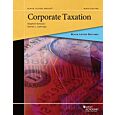
Black Letter Series: Corporate Taxation
List Price $57.00 Our Low Price $54.72 -
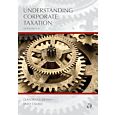
Understanding Series: Understanding Corporate Taxation
List Price $57.00 Our Low Price $54.72

